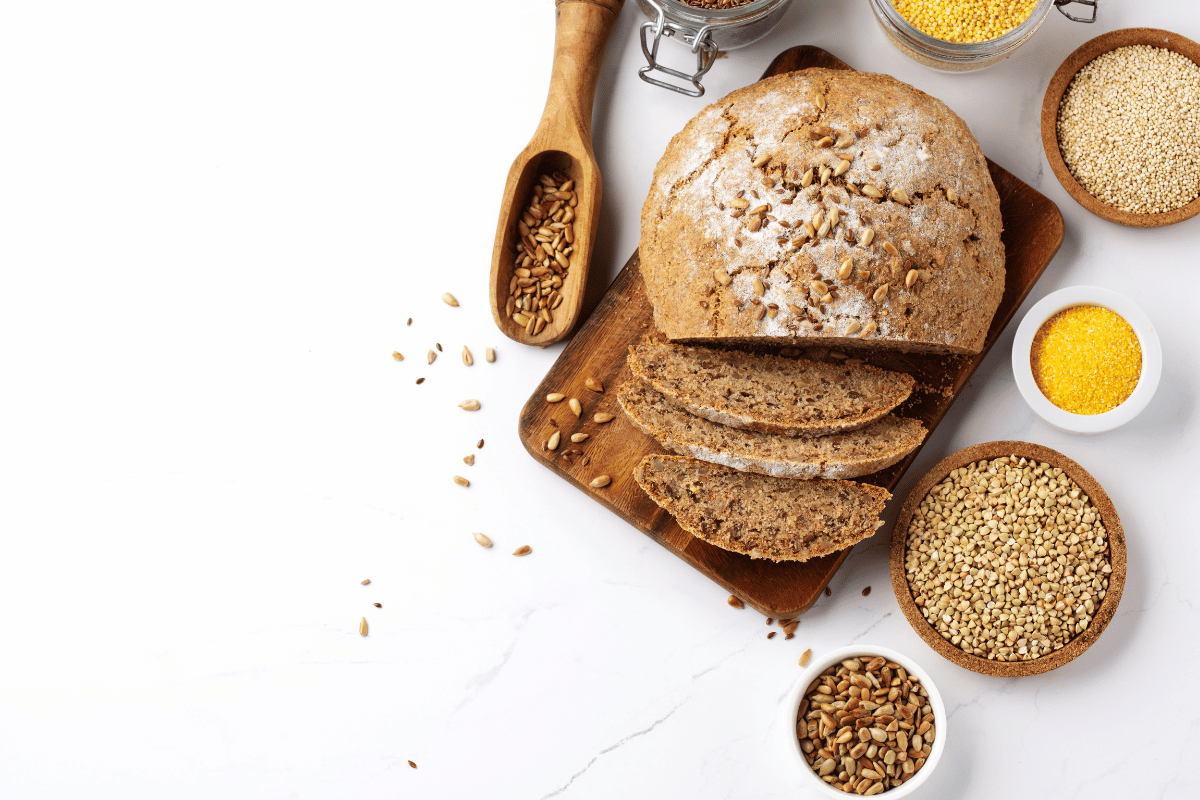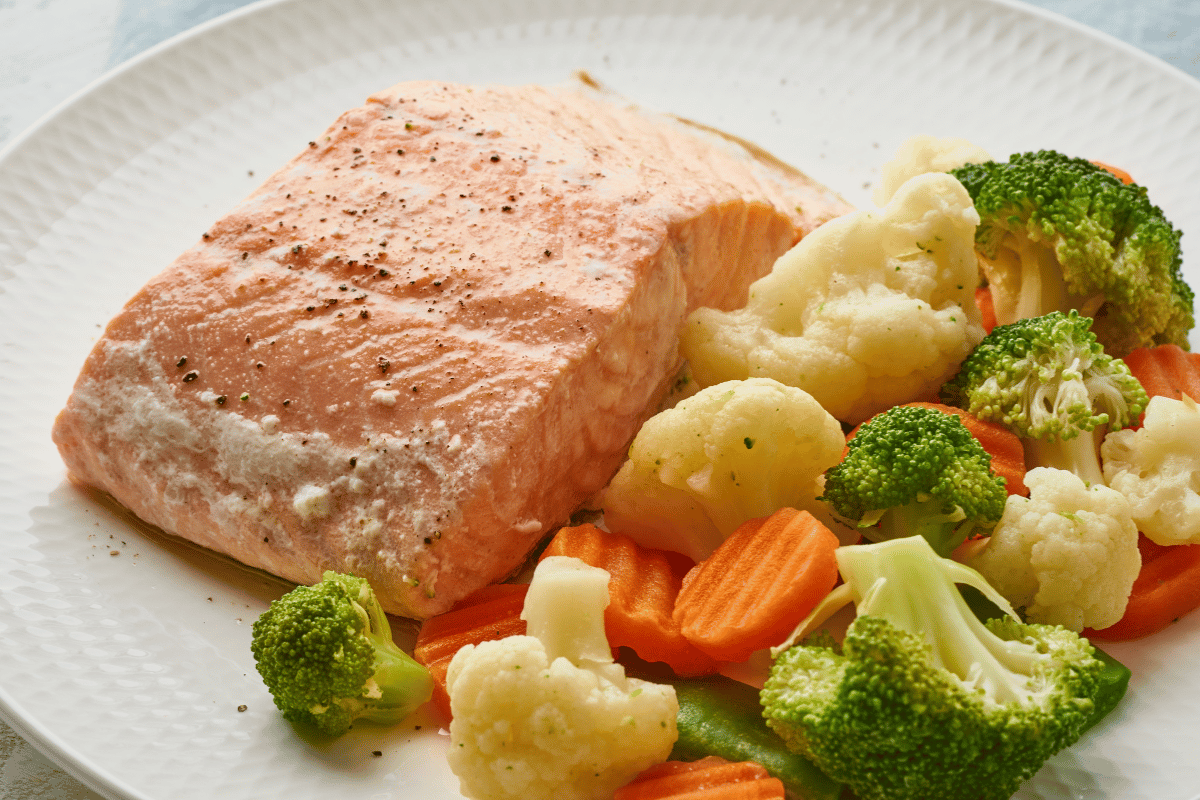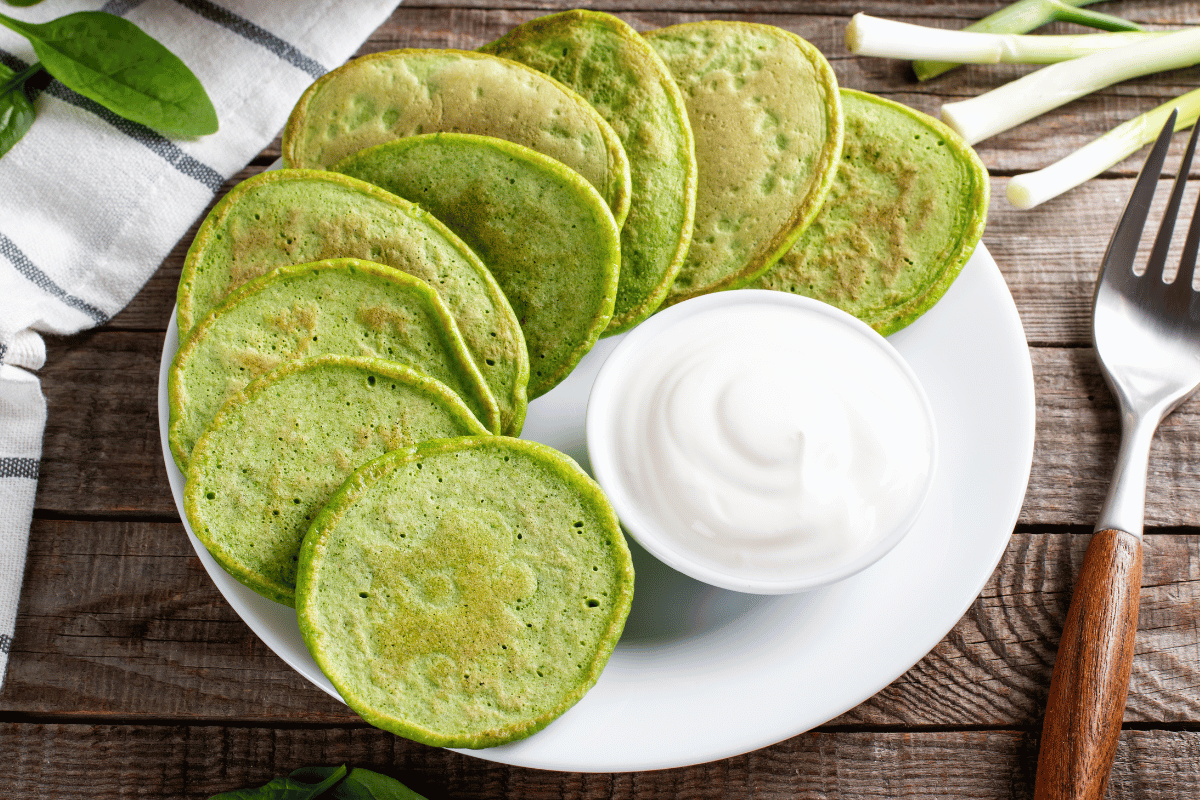As we step into 2024, the quest for effective weight loss strategies continues to dominate health and wellness discussions. Among various dietary approaches, the lectin-free diet has emerged as a powerful tool in the fight against excess weight. This guide delves into how adopting a lectin-free diet can significantly aid in shedding up to 20 pounds in a healthy and sustainable manner.
The concept of a lectin-free diet revolves around eliminating or reducing lectins, a type of protein found in many foods, believed to contribute to inflammation and weight gain. By focusing on this approach, individuals can not only aim for weight loss but also enhance their overall health and well-being.
Throughout this guide, we will explore the fundamentals of a lectin-free diet, including its definition, the science behind it, and a practical step-by-step plan to help you lose 20 pounds effectively. Additionally, we will cover essential weight loss tips, health considerations, success stories, and address frequently asked questions to provide a comprehensive overview of this diet’s potential in your weight loss journey.

Understanding Lectins
In the pursuit of weight loss and improved health, understanding the role of lectins in our diet is crucial. Lectins are a type of protein predominantly found in legumes, grains, and some nightshade vegetables. They have become a subject of interest due to their impact on the body’s metabolism and overall health.
Lectins are known to bind to cell membranes in the digestive tract. Some studies suggest that this binding can lead to digestive issues and may interfere with the absorption of nutrients, potentially leading to inflammatory responses and weight gain. This is the scientific basis behind reducing lectin intake as a strategy for weight loss and enhanced wellness.
The rationale for a lectin-free diet stems from the belief that by limiting these proteins, individuals can minimize their negative health impacts. This includes improving gut health, reducing inflammation, and facilitating a more efficient metabolic process – all essential factors in achieving sustainable weight loss.

Basics of a Lectin-Free Diet
Embarking on a lectin-free diet involves understanding its core principles and identifying which foods to embrace and which to avoid. This diet is more than just a weight loss plan; it’s a lifestyle change aimed at improving overall health.
Core Principles:
- Eliminate High-Lectin Foods: The primary goal is to reduce or eliminate foods high in lectins, such as grains, legumes, and certain vegetables like nightshades.
- Focus on Nutrient-Dense Foods: Emphasize foods that are rich in nutrients yet low in lectins, like leafy greens, certain nuts and seeds, and quality proteins.
- Promote Gut Health: A key aspect of this diet is to enhance gut health, as lectins can impact the gut lining and digestion.
Foods to Include:
- Vegetables: Opt for non-nightshade varieties like broccoli, cauliflower, and leafy greens.
- Proteins: Choose grass-fed meats, wild-caught fish, and pasture-raised poultry.
- Fats: Include healthy fats like avocados, olive oil, and coconut oil.
- Nuts and Seeds: Select lectin-free options like almonds, macadamia nuts, and flax seeds.
Foods to Avoid:
- Grains: Wheat, rice, barley, and other grains are high in lectins.
- Legumes: Beans, lentils, and peanuts should be avoided.
- Nightshades: Tomatoes, potatoes, eggplants, and peppers are high in lectins.
Sample Meal Plan:
- Breakfast: Scrambled eggs with spinach and avocado.
- Lunch: Grilled chicken salad with mixed greens, nuts, and an olive oil dressing.
- Dinner: Baked salmon with steamed broccoli and a side of quinoa (note that quinoa is lower in lectins than other grains).
Implementing a lectin-free diet requires some adjustments, but it offers a path to not just weight loss, but also to improved digestive health and overall vitality. The next sections will provide a detailed plan to lose 20 pounds, additional weight loss tips, and health considerations.
Step-by-Step Plan to Lose 20 Pounds
Adopting a lectin-free diet can be a transformative step in your weight loss journey. Here’s a structured week-by-week guide to help you lose 20 pounds effectively while following this diet plan.
Week 1-2: Adjusting Your Diet
- Focus on eliminating high-lectin foods from your meals.
- Introduce more lectin-free vegetables, quality proteins, and healthy fats into your diet.
- Monitor how your body reacts to these dietary changes.
Week 3-4: Intensifying Lectin-Free Eating
- Experiment with a wider variety of lectin-free foods to keep your diet diverse and enjoyable.
- Begin to notice changes in your energy levels and overall well-being.
Week 5-6: Establishing Routine
- By now, the lectin-free diet should start to feel more like a normal routine.
- Focus on portion control and mindful eating to avoid overeating, even with healthy foods.
Week 7-8: Evaluating and Adjusting
- Assess your progress towards your weight loss goal.
- Make necessary adjustments, such as increasing physical activity or tweaking your diet.
Strategies for Sustainable Weight Loss:
- Stay hydrated and ensure you’re drinking plenty of water throughout the day.
- Incorporate moderate exercise, like walking or yoga, to complement your diet.
- Get adequate sleep, as it’s vital for weight loss and overall health.
Monitoring Progress:
- Keep a food diary to track what you eat and how you feel.
- Regularly weigh yourself and take body measurements to monitor changes.
- Celebrate small milestones to stay motivated.
By following this step-by-step plan, adopting a lectin-free diet can lead to significant weight loss while promoting better health. Remember, everyone’s body is different, so adjustments may be necessary based on your individual response to the diet.
Additional Weight Loss Tips
While adopting a lectin-free diet is a significant step towards weight loss, incorporating additional strategies can further enhance your results. Here are some supplementary tips to complement your diet plan:
Exercise Recommendations:
- Regular Physical Activity: Aim for at least 150 minutes of moderate aerobic activity or 75 minutes of vigorous activity per week, along with strength training exercises twice a week.
- Find Enjoyable Activities: Choose exercises that you enjoy, whether it’s walking, cycling, swimming, or yoga. This helps in maintaining consistency.
Importance of Hydration and Sleep:
- Stay Hydrated: Drinking adequate water throughout the day aids in digestion, metabolism, and feeling full, which helps in reducing overeating.
- Quality Sleep: Aim for 7-9 hours of sleep per night. Poor sleep is linked to weight gain, as it can affect appetite hormones and lead to increased hunger and cravings.
Managing Cravings and Cheat Days:
- Healthy Snacking: Opt for healthy snacks like nuts, seeds, or fruits when cravings strike.
- Plan Cheat Days Wisely: Occasional cheat days are okay, but it’s important to plan them and limit indulgences to avoid derailing your progress.
Mindful Eating:
- Eat Slowly: Take time to chew your food and enjoy each bite, which can lead to better digestion and a greater sense of fullness.
- Listen to Your Body: Eat when you’re hungry and stop when you’re full. Avoid eating out of boredom or stress.
By integrating these additional tips with your lectin-free diet, you can create a comprehensive and sustainable approach to weight loss. Remember, the key to success is consistency and a balanced approach to your overall health and well-being.

Health Considerations and Precautions
While a lectin-free diet can offer significant benefits for weight loss and overall health, it’s important to approach it with certain considerations and precautions in mind.
Potential Risks and Side Effects:
- Nutritional Deficiencies: Eliminating certain food groups can lead to deficiencies in nutrients like fiber, vitamins, and minerals. It’s crucial to ensure a well-rounded diet even when following a lectin-free plan.
- Digestive Changes: Some people might experience changes in their digestion due to dietary alterations. It’s essential to monitor these changes and adjust the diet accordingly.
Consulting a Healthcare Professional:
- Pre-Existing Health Conditions: If you have any underlying health issues, particularly related to digestion, it’s wise to consult a healthcare professional before starting a lectin-free diet.
- Regular Check-Ups: Regular health check-ups can help monitor how the diet is affecting your overall health and make necessary adjustments.
Tailoring the Diet to Individual Health Needs:
- Personalization: Understand that everyone’s body reacts differently. It’s important to tailor the lectin-free diet to your individual health needs and preferences.
- Balance and Moderation: Balance is key. Ensure that your diet includes a variety of foods to maintain overall health.
Mental and Emotional Well-being:
- Stress and Eating Habits: Pay attention to how stress affects your eating habits. Consider incorporating stress-reduction techniques like meditation or mindfulness.
- Positive Attitude: Maintain a positive and realistic attitude towards your weight loss journey. It’s about progress, not perfection.
By considering these health aspects and precautions, you can ensure that your experience with a lectin-free diet is not only effective for weight loss but also beneficial for your overall health and well-being.
Success Stories and Testimonials
One of the most inspiring aspects of adopting a new diet plan are the success stories and testimonials from those who have seen tangible results. The lectin-free diet is no exception, with numerous individuals reporting significant weight loss and improved health.
Real-life Examples:
- A 45-year-old woman reported losing 20 pounds over three months on a lectin-free diet. She noted not just weight loss, but also reduced joint pain and increased energy levels.
- Another success story comes from a 35-year-old male who lost 25 pounds in four months. He highlighted improvements in digestive health and a reduction in bloating and discomfort.
These stories provide more than just numbers; they offer insights into how a lectin-free diet can lead to a healthier lifestyle. They also highlight the importance of consistency and patience; weight loss and health improvements are a journey, not an overnight transformation.
Key Takeaways:
- Individual Experiences Vary: Each person’s experience with the lectin-free diet will differ. It’s important to set realistic goals and understand that results can vary based on several factors including age, starting weight, and adherence to the diet.
- Holistic Health Improvements: Many individuals report benefits beyond weight loss, including enhanced energy levels, better digestion, and reduced symptoms of inflammation.
These testimonials underscore the potential of a lectin-free diet as a tool not just for weight loss, but for fostering overall well-being. They serve as motivation and evidence that making dietary changes can have a profound impact on one’s health.
Frequently Asked Questions (FAQs)
In this section, we address some common queries about the lectin-free diet to provide clearer guidance and help you navigate your weight loss journey more effectively.
Q1: How quickly can one expect to lose weight on a lectin-free diet? A: Weight loss timelines vary from person to person. On average, individuals may start noticing weight loss within a few weeks of following a strict lectin-free diet, especially when combined with regular exercise and healthy lifestyle choices.
Q2: Can a lectin-free diet be combined with other diet plans? A: It’s possible to combine a lectin-free diet with other dietary approaches, but it’s important to ensure that the combination is nutritionally balanced and sustainable in the long term. Consulting with a nutritionist or dietitian can provide personalized guidance.
Q3: Are there any long-term health risks associated with a lectin-free diet? A: When followed correctly, a lectin-free diet does not typically pose long-term health risks. However, it is crucial to maintain a balanced diet and ensure you are getting all the necessary nutrients. Long-term adherence to any restrictive diet should be monitored by a healthcare professional.
Q4: How to handle dining out or social events on a lectin-free diet? A: When dining out, look for menu options that align with the lectin-free diet, such as salads, grilled proteins, and vegetable-based dishes. It’s also helpful to communicate your dietary preferences to the host or chef. Planning ahead can make managing social events easier while sticking to your diet plan.
Q5: Are there any specific supplements recommended for a lectin-free diet? A: Depending on your individual nutritional needs, supplements like multivitamins, omega-3 fatty acids, or fiber supplements might be beneficial. It’s best to consult with a healthcare professional to determine if supplements are necessary for you.

